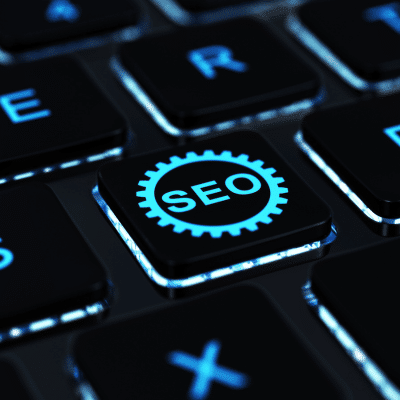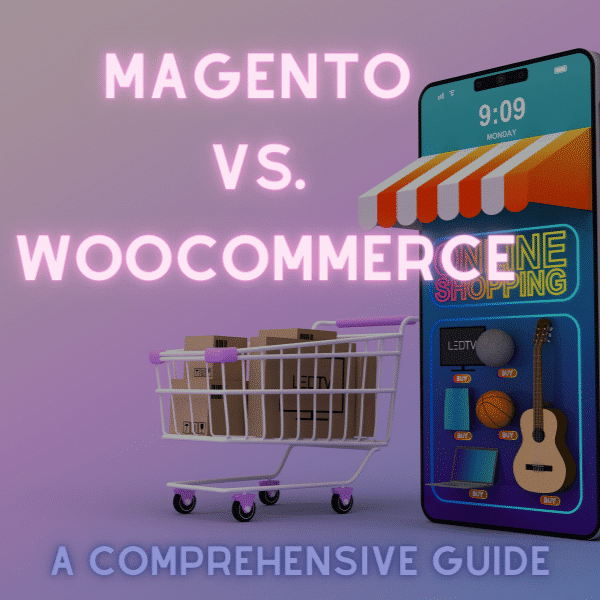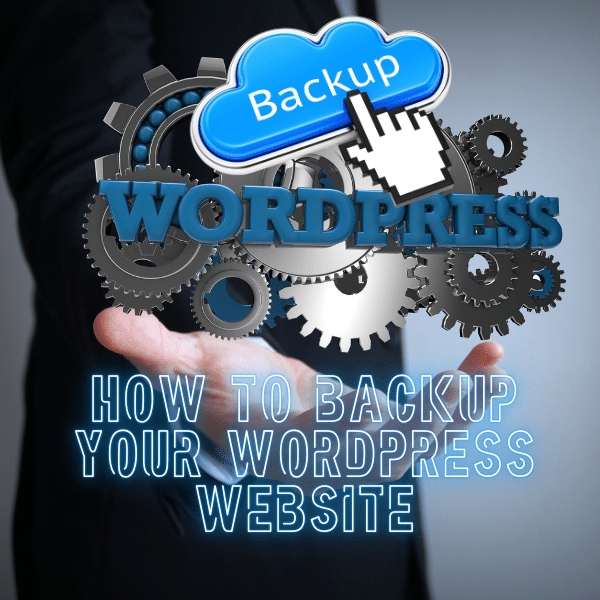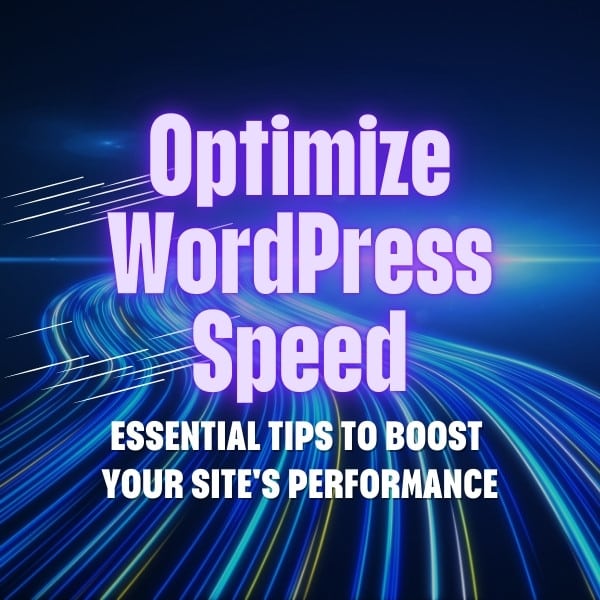Why you can trust Sunlight Media
- Expertise and Experience:Our content is crafted by seasoned professionals with extensive experience in digital marketing, ensuring you receive accurate and actionable advice.
- Unbiased Information:We provide impartial insights and recommendations based solely on what's best for your business, without any hidden agendas or promotions.
- Thorough Research:Our articles are backed by comprehensive research and the latest industry trends, ensuring you stay informed with reliable and up-to-date information.
- Transparency and Honesty:We believe in complete transparency. We disclose our sources, methodologies, and any potential conflicts of interest, so you can trust the integrity of our content.
- Continuous Improvement:We constantly review and update our content to reflect the latest developments in digital marketing, so you always have access to the most current and relevant information.

Choosing the right e-commerce platform is vital in today’s fast-paced online business world. Magento and WooCommerce are two popular options.
Each has unique benefits, making deciding which fits your needs hard. In this blog post, we’ll compare Magento and WooCommerce.
We’ll focus on features, performance, customization, pricing, and more. We aim to help you make an informed choice for your online store.
Let’s explore Magento Vs. WooCommerce and discover which solution will best drive your business to success.
Customization Capabilities: Magento Vs. WordPress WooCommerce Flexibility
E-commerce platforms must be flexible to meet the unique needs of various businesses. In this section, we’ll explore Magento and WordPress WooCommerce’s customization options, focusing on adaptability and user-friendliness.
Magento Customization
Magento is known for its powerful features, and it offers a wide range of customization choices for businesses with specific requirements. With a vast library of themes and extensions, Magento enables you to create a tailored shopping experience. However, implementing these customizations may require a skilled developer, as Magento can be complex for beginners.
Critical aspects of Magento customization include:
- Responsive themes: Easily adjust your store’s design for various devices, improving browsing.
- Large extension marketplace: Additionally, you can choose from many extensions to add functions to your store.
- Developer-friendly: Magento’s open-source nature allows developers to change the code, providing countless options.
WordPress WooCommerce Flexibility
On the other hand, WooCommerce, a popular WordPress plugin, benefits from the extensive ecosystem of WordPress design themes and plugins. With a user-friendly interface, WooCommerce is more accessible to those with limited technical skills. As a result, it offers a more straightforward approach to customization while still providing useful features.
Critical aspects of WooCommerce customization include:
- Theme compatibility: For instance, you can integrate WooCommerce with nearly any WordPress theme, ensuring a consistent design.
- Plugin integration: You can use the vast WordPress plugin repository to expand your store’s features.
- No-coding customization: Lastly, you can easily modify your store’s appearance and settings through the WordPress dashboard.
In conclusion, Magento provides more advanced customization options but may require developer expertise. Conversely, WooCommerce offers a more user-friendly approach. The choice between these platforms depends on your business’s specific needs and technical abilities.
Security Features: Comparing Magento and WooCommerce for Online Store Safety

Magento Security
Magento, being a powerful e-commerce platform, is known for its robust security features. Built with security in mind, Magento continually releases security patches to address vulnerabilities and protect your store against potential threats.
Critical aspects of Magento security include:
- Regular security patches: Magento frequently releases updates to fix security issues, ensuring your store remains protected.
- Dedicated security center: Magento offers a security center with resources, best practices, and tools to help you maintain a secure store.
- Two-factor authentication (2FA): This feature adds an extra layer of protection by requiring users to verify their identity using a secondary method.
WooCommerce Security
WooCommerce, as a WordPress plugin, relies heavily on the security measures provided by the WordPress ecosystem. While WooCommerce itself is secure, the overall security of your store depends on the safety of your WordPress installation, themes, and plugins.
Critical aspects of WooCommerce security include:
- Regular updates: WooCommerce and WordPress receive frequent updates to fix vulnerabilities and improve security.
- Security plugins: You can enhance your store’s security by using reputable plugins, such as Wordfence or Sucuri, to monitor and protect your site.
- SSL certificate integration: WooCommerce supports SSL certificates and encrypts data between your store and customers, ensuring safe transactions.
Both Magento and WooCommerce offer security features to protect your online store. Magento has built-in security measures and a dedicated security center, while WooCommerce relies on the WordPress ecosystem and additional security plugins. The choice between these platforms depends on your preferences, technical abilities, and the desired level of security for your e-commerce store.
Speed and Performance: Magento and WooCommerce Load Times Compared
A fast-loading online store is essential for providing a positive user experience and retaining customers. In this section, we’ll compare the speed and performance of Magento and WooCommerce to see how each platform affects your store’s load times.
Magento Speed and Performance
Magento is a powerful and feature-rich platform, but its complexity can sometimes result in slower load times if not properly optimized. However, Magento can deliver a fast and high-performing online store with the correct configuration and optimization.
Critical aspects of Magento’s speed and performance include:
- Built-in performance optimization: Magento offers built-in tools like Varnish and full-page caching to enhance your store’s speed.
- Scalability: Magento can handle large product catalogs and high traffic volumes, making it suitable for growing businesses.
- Optimization services: You can engage professional Magento optimization services to fine-tune your store’s performance.
WooCommerce Speed and Performance
WooCommerce, as a WordPress plugin, has a lighter framework than Magento. This results in generally faster load times out-of-the-box. However, the performance of your WooCommerce store is also influenced by your WordPress theme, plugins, and hosting provider.
Critical aspects of WooCommerce speed and performance include:
- Lightweight framework: WooCommerce’s simpler architecture contributes to faster load times, especially for small to medium-sized stores.
- Performance-enhancing plugins: You can use plugins like WP Rocket or W3 Total Cache to improve your store’s speed further.
- Hosting provider: Choosing a reliable and performance-oriented hosting provider can significantly impact your WooCommerce store’s speed.
While Magento can offer better performance for larger and more complex stores with proper optimization, WooCommerce delivers faster load times for smaller stores without extensive customization. The choice between these platforms depends on your store’s size, expected traffic, and ability to optimize the platform for speed and performance.
Payment Gateway Integration: Which Platform Offers More Flexibility – Magento or WooCommerce?

Magento Payment Gateway Integration
Magento supports a wide range of payment gateways by default, allowing store owners to choose the best solution for their needs. Moreover, the platform’s extensibility provides for easy integration of additional payment gateways through third-party extensions.
Key aspects of Magento payment gateway integration include:
- Built-in support: Magento natively supports popular payment gateways such as PayPal, Braintree, and Authorize.Net.
- Extension marketplace: You can access a vast selection of third-party extensions to integrate additional payment gateways catering to various regions and industries.
- Custom development: Magento’s open-source nature enables developers to create custom payment gateway integrations if required.
WooCommerce Payment Gateway Integration
WooCommerce also offers a flexible approach to payment gateway integration. As a WordPress plugin, WooCommerce leverages the extensive WordPress ecosystem, enabling store owners to choose from numerous plugins to integrate various payment gateways.
Key aspects of WooCommerce payment gateway integration include:
- Built-in support: WooCommerce supports widely-used payment gateways like PayPal and Stripe out-of-the-box.
- Plugin repository: The WordPress plugin repository offers countless plugins for integrating other payment gateways, including regional and industry-specific options.
- Custom development: WooCommerce’s open-source structure allows for the development of custom payment gateway integrations if needed.
Both Magento and WooCommerce provide a high level of flexibility regarding payment gateway integration. While Magento has built-in support for several popular gateways and a vast extension marketplace, WooCommerce benefits from the extensive WordPress ecosystem and plugin repository. The choice between these platforms depends on your business’s specific requirements and your customers’ desired range of payment options.
Analyzing Scalability: Which E-commerce Platform is Best for Growing Businesses?
Scalability is crucial when selecting an e-commerce platform, as it determines how well the platform can adapt to your business’s growth and changing needs. In this section, we’ll compare the scalability of Magento and WooCommerce to help you decide which platform is better suited for growing businesses.
Magento Scalability
Magento is known for its robust architecture and high scalability, making it an ideal choice for businesses with large product catalogs and high traffic volumes. Its powerful features and customizability enable store owners to expand and optimize their online stores as their businesses grow.
Key aspects of Magento scalability include:
- High traffic handling: Magento can efficiently manage large traffic loads, ensuring a seamless user experience even during peak periods.
- Large product catalogs: Magento is well-equipped to handle extensive records without compromising site performance.
- Enterprise Edition: Magento Commerce (formerly Magento Enterprise Edition) offers enhanced scalability and performance for businesses seeking advanced features and dedicated support.
WooCommerce Scalability
WooCommerce, as a WordPress plugin, can also be scaled to accommodate a growing business. However, its scalability largely depends on hosting, theme, and plugin choices. With the proper setup and optimizations, WooCommerce can effectively support medium-sized stores.
Key aspects of WooCommerce scalability include:
- Hosting provider: Choosing a high-performance hosting provider that can scale resources as your store grows is essential for WooCommerce scalability.
- Theme and plugin optimization: Selecting well-optimized themes and plugins can significantly impact your store’s performance and scalability.
- Scalability-enhancing plugins: Plugins like WP Rocket and W3 Total Cache can help improve the scalability of your WooCommerce store by optimizing site speed and performance.
While both Magento and WooCommerce can be scaled to accommodate growing businesses, Magento is generally better suited for large-scale e-commerce stores with high traffic volumes and extensive product catalogs. WooCommerce, on the other hand, is more appropriate for small to medium-sized businesses, provided the store is optimized with the right hosting, theme, and plugin choices. Choosing these platforms depends on your business’s needs and future growth expectations.
Cost Comparison: Magento and WooCommerce Pricing Structures Explored
Understanding the costs associated with an e-commerce platform is essential for making an informed decision when choosing between Magento and WooCommerce. In this section, we’ll explore the pricing structures of both platforms, considering factors such as licensing, hosting, extensions, and development.
Magento Cost
Magento offers two main versions: Magento Open Source (formerly Magento Community Edition) and Magento Commerce (formerly Magento Enterprise Edition). Costs associated with Magento can vary significantly depending on the version, hosting, and development requirements.
Critical aspects of Magento cost include:
- Licensing: Magento Open Source is free to download and use, while Magento Commerce requires a paid license, with fees starting at around $22,000 per year.
- Hosting: Magento can be resource-intensive, and a dedicated, high-performance hosting plan is recommended, which can be more expensive than shared hosting.
- Extensions and themes: While many Magento extensions and themes are free, premium options may require a one-time or recurring fee.
- Development: Customizing and managing a Magento store can be complex, and hiring a skilled developer or development team can add to the overall cost.
WooCommerce Cost
WooCommerce is a free, open-source plugin for WordPress. While the plugin is free, additional costs exist when setting up and maintaining a WooCommerce store.
Key aspects of WooCommerce cost include:
- Licensing: WooCommerce is free to download and use, but you must pay for a domain and SSL certificate.
- Hosting: WooCommerce can run on various hosting plans, from shared to dedicated, with varying costs. Optimized WooCommerce hosting plans are also available.
- Extensions and themes: Many WooCommerce extensions and themes are free, but premium options may require a one-time or subscription-based fee.
- Development: Customizing a WooCommerce store can be more accessible than Magento, but hiring a developer for complex tasks or ongoing maintenance can still contribute to the overall cost.
WooCommerce is generally more cost-effective for small to medium-sized businesses, offering a free plugin, lower hosting costs, and easier customization. On the other hand, Magento can be more expensive due to its resource-intensive nature, the cost of Magento Commerce licensing, and potential development costs. However, the investment in Magento may be justified for large-scale businesses requiring advanced features and scalability. The choice between these platforms depends on your business size, budget, and e-commerce requirements.
Extensions and Plugins: Magento Vs. WooCommerce for Enhanced E-commerce Functionality

Magento Extensions
Magento has a rich ecosystem of extensions available through the Magento Marketplace and third-party developers. These extensions cater to various e-commerce needs, such as marketing, analytics, shipping, and payment gateways.
Key aspects of Magento extensions include:
- Magento Marketplace: The official Magento Marketplace offers a curated selection of extensions, ensuring quality and compatibility with the platform.
- Variety: Magento extensions cover various functionalities, including SEO, customer support, inventory management, and more.
- Quality and support: Many Magento extensions have dedicated support, ensuring seamless integration and assistance with any issues.
WooCommerce Plugins
WooCommerce, as a WordPress plugin, benefits from the extensive WordPress ecosystem. The platform offers various plugins to enhance your e-commerce store’s functionality, addressing diverse requirements across industries and regions.
Key aspects of WooCommerce plugins include:
- WordPress Plugin Repository: The official WordPress Plugin Repository offers thousands of WooCommerce-compatible plugins covering many functionalities.
- Variety: WooCommerce plugins cater to various e-commerce needs, such as social media integration, marketing automation, currency conversion, etc.
- Community support: The WordPress community offers support and resources for WooCommerce plugins, making it easier for store owners to find solutions to any issues.
In conclusion, both Magento and WooCommerce offer a rich selection of extensions and plugins to enhance the functionality of your e-commerce store. While Magento has a dedicated marketplace with curated extensions, WooCommerce benefits from its extensive WordPress ecosystem and vast plugin repository. The choice between these platforms depends on your specific e-commerce requirements and the desired level of customization and functionality for your online store.
Community and Support: Comparing the Magento and WooCommerce Ecosystems
A strong community and support system are crucial when choosing an e-commerce platform, as they provide store owners with resources, assistance, and guidance. In this section, we’ll compare the community and support ecosystems of Magento and WooCommerce to help you determine which platform offers better service.
Magento Community and Support
Magento boasts a large and active community of developers, store owners, and partners, contributing to the platform’s ongoing growth and improvement. The Magento ecosystem offers various support channels, including forums, blogs, and official documentation.
Key aspects of the Magento community and support include:
- Magento Forums: The official Magento forums allow users to ask questions, share knowledge, and find solutions to common issues.
- Magento DevDocs: Magento DevDocs offer comprehensive documentation and guides for Magento developers, covering installation, customization, and troubleshooting.
- Magento partners: The Magento Partner Network consists of solution partners, technology partners, and community insiders, providing professional services and support for Magento users.
WooCommerce Community and Support
WooCommerce, as a part of the WordPress ecosystem, enjoys a massive community of developers, designers, and store owners. This extensive community provides a wealth of resources, including forums, blogs, and tutorials, for WooCommerce users.
Key aspects of WooCommerce community and support include:
- WordPress Forums: The official WordPress forums contain a dedicated WooCommerce section where users can seek help, share experiences, and find solutions to common issues.
- WooCommerce Documentation: WooCommerce offers detailed documentation and guides for store owners and developers, covering installation, configuration, and customization.
- WordPress community: The broader WordPress community contributes to the development and support of WooCommerce, offering tutorials, blog posts, and resources to help users get the most out of the platform.
Both Magento and WooCommerce have strong communities and support ecosystems, providing valuable resources and assistance to users. In contrast, Magento has a dedicated partner network and comprehensive developer documentation, WooCommerce benefits from the vast WordPress community and its extensive knowledge base. The choice between these platforms depends on your preferences and the type of support and community resources that best suit your needs.
SEO Impact: Magento Vs. WooCommerce for Improved Search Engine Rankings

Magento SEO
Magento is designed with SEO in mind, offering various built-in features and tools to help optimize your e-commerce store for search engines. Additionally, the platform’s extensibility enables store owners to incorporate third-party SEO extensions for further enhancements.
Key aspects of Magento SEO include:
- Built-in features: Magento includes essential SEO features such as customizable URLs, meta tags, XML sitemaps, and canonical tags, ensuring search engine-friendly store structures.
- Site performance: Magento’s robust architecture and scalability can contribute positively to site speed, a crucial factor in search engine rankings.
- SEO extensions: The Magento Marketplace offers various third-party SEO extensions, providing additional optimization tools and features to improve your store’s search engine performance.
WooCommerce SEO
WooCommerce also offers solid SEO optimization capabilities, leveraging the SEO strengths of the WordPress platform. Numerous SEO plugins are available for WordPress, allowing store owners to optimize their WooCommerce stores for search engines effectively.
Key aspects of WooCommerce SEO include:
- Built-in features: WooCommerce inherits essential SEO features from WordPress, such as customizable permalinks, meta tags, and XML sitemaps.
- Site performance: WooCommerce’s performance and speed depend on factors like hosting, theme, and plugin choices, which can influence search engine rankings.
- SEO plugins: The WordPress plugin repository offers a wide range of SEO plugins, such as Yoast SEO and All in One SEO Pack, which provide comprehensive tools for optimizing your WooCommerce store.
Magento and WooCommerce offer strong SEO capabilities to improve search engine rankings. At the same time, Magento provides built-in SEO features and the ability to enhance optimization through extensions. WooCommerce benefits from the extensive WordPress ecosystem and its wide array of SEO plugins. The choice between these platforms depends on your specific SEO requirements and your desired optimization level for your e-commerce store.
Conclusion
When deciding between Magento and WooCommerce for your e-commerce store, several factors should be considered, such as customization, security, performance, cost, scalability, extensions, community support, and SEO impact. Both platforms have unique strengths and weaknesses, catering to different business needs and requirements.
Magento is ideal for large-scale businesses with extensive product catalogs and high traffic volumes. Its robust architecture, high scalability, and extensive customization capabilities make it a powerful solution for enterprise-level e-commerce stores. However, Magento can be more expensive and resource-intensive, requiring professional development skills and a more significant investment.
On the other hand, WooCommerce is a more cost-effective and user-friendly solution for small to medium-sized businesses. As a WordPress plugin, it benefits from the extensive WordPress ecosystem, offering a vast range of themes, plugins, and community support. WooCommerce can be scaled to accommodate growing businesses, provided the store is optimized with the right hosting, theme, and plugin choices.
Ultimately, the choice between Magento and WooCommerce depends on your business size, budget, e-commerce requirements, and future growth expectations. Carefully weighing the pros and cons of each platform will help you determine the best solution for your online store’s specific needs and objectives.














